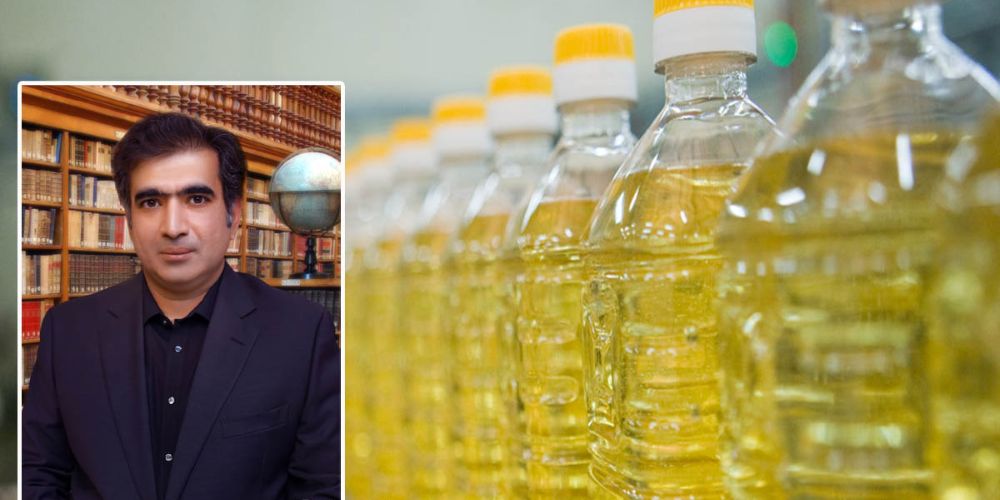To increase the domestic production of edible oil, Pakistan’s agriculture sector urgently needs the government’s attention. A stunning $4 billion worth of edible oil is imported into the nation each year, which has a tremendous negative impact on the economy.
According to experts, the coastal regions of Sindh have a significant potential for producing palm, sesame, and canola oils; however, the government must act quickly to boost production and lessen its dependency on imports.
Sheikh Umer Rehan, a former vice chairman of the Pakistan Vanaspati Manufacturers Association (PVMA), urged immediate action to improve the nation’s output of edible oil and seeds.
Rehan observed that the price of edible oil has been steadily rising in the nation as a result of the State Bank of Pakistan’s (SBP) decision to restrict Letters of Credit (LCs) and the lack of foreign exchange. This has made it more challenging for the populace to obtain the item.

Muhammad Ali Iqbal, president of Concave Agri Services, stated that “the largest challenge is the will of the government.”
Iqbal also emphasized the necessity for standardized methods for the growth of various edible oil plant species.
Several edible oil plants kinds that are locally grown have not been able to produce the intended outcomes due to non-standardized methods. In Mianwali, for instance, canola is now widely grown, but the UAF-11 variety of unapproved canola that the majority of farmers use has a 20% uric acid content, which is more than the 5% level allowed for edible oil. Due to the rise in edible oil prices, this lack of standardization has led to an increase in smuggling.
Iqbal complained that “the edible oil sector doesn’t want to give a fair price to the local farmers, but seems to be willing to pay more to foreign growers.”
The Southern Divisions of Sindh, which include Hyderabad, Mirpurkhas, and Shaheed Benazirabad, are already making strides in the cultivation of oilseed crops, according to Sindh Chamber of Agriculture President Miran Mohammed Shah. Local farmers do not, however, receive any assistance from the government in the creation of these seeds, including incentives like discounted prices and ensuring their availability.
Mahmood Nawaz Shah, senior vice president of Sindh Abadghar Board (SAB), claims that there is a significant chance for oil seed cultivation in Pakistan with a consistent long-term strategy. For growers to achieve the right yields and return on the crop, this strategy will also include the provision of quality seeds/plants, fair pricing, and an extension activity.
The government is still not paying enough attention to agriculture to create a long-term sustainable policy, he claimed, despite Pakistan having the potential to produce oil seeds for more than a decade.
Urgent action is required to increase the domestic production of edible oil in Pakistan due to the nation’s dependency on imports and growing prices of the commodity. With the government’s assistance and support for standardized procedures and the creation of high-quality seeds/plants, it is possible to maximize the potential for the production of palm, sesame, and canola oils in the coastal regions of Sindh. To increase the production of edible oil in Pakistan’s agriculture sector, a consistent, long-term strategy is required.








